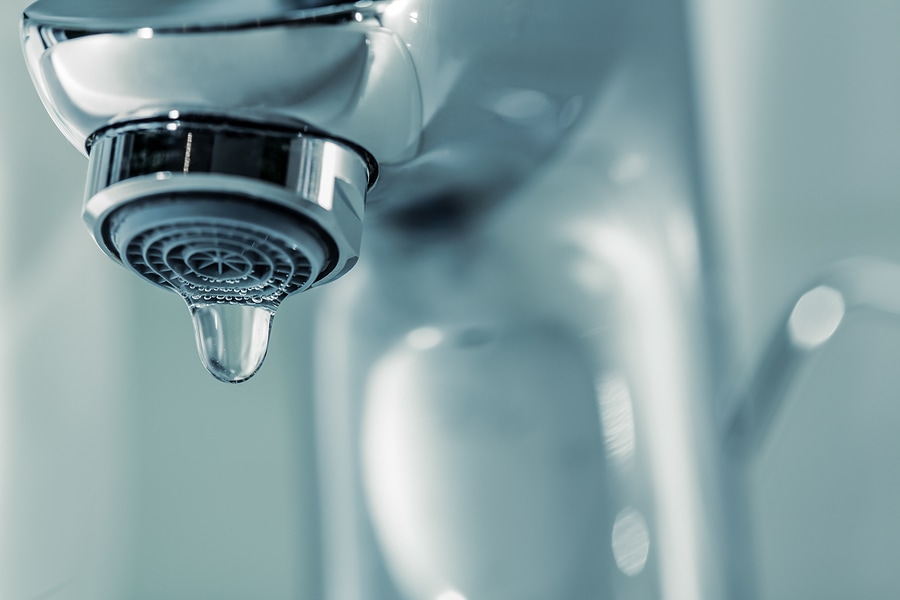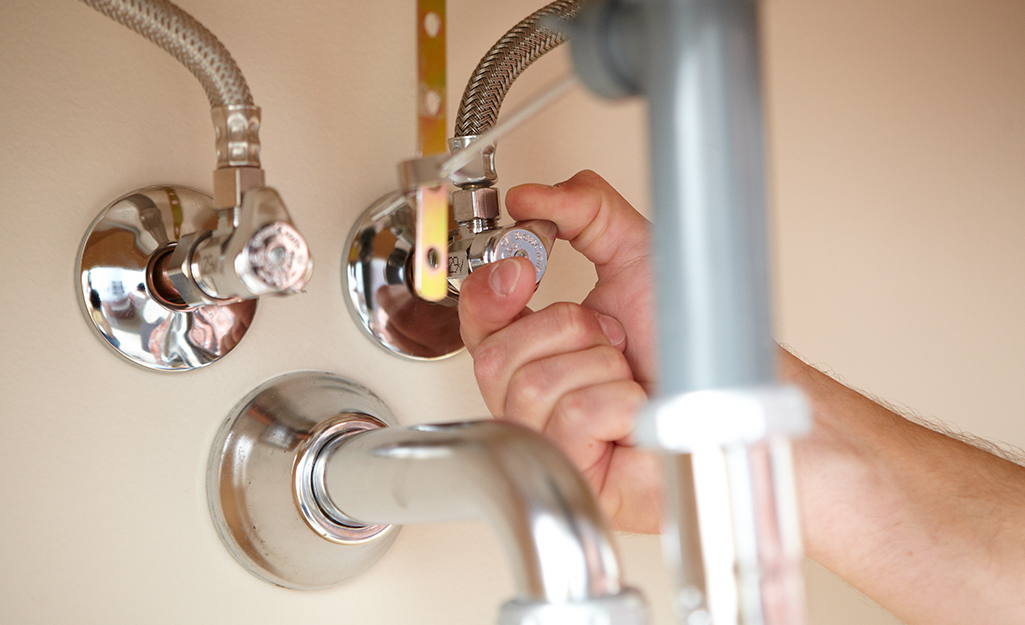How It's Vital to Resolve a Malfunctioning Faucet
How It's Vital to Resolve a Malfunctioning Faucet
Blog Article
Everybody has their unique opinion with regards to Why It's Important to Fix Leaky Faucets.

Leaking faucets might appear like a minor aggravation, yet their influence exceeds just the inconvenience of the audio. From wasting water to incurring unnecessary monetary expenses and health and wellness threats, ignoring a trickling tap can lead to numerous consequences. In this article, we'll delve into why it's critical to address this usual household issue without delay and efficiently.
Wastefulness of Water
Environmental Influence
Dripping taps add substantially to water wastefulness. According to the Environmental Protection Agency (EPA), a solitary faucet leaking at one drip per secondly can squander more than 3,000 gallons of water annually. This not just strains water sources yet likewise influences ecological communities and wildlife depending on them.
Step-by-Step Overview to Repairing a Dripping Tap
Devices Required
Prior to trying to take care of a dripping faucet, collect the essential tools, consisting of an adjustable wrench, screwdrivers, replacement parts (such as washing machines or cartridges), and plumber's tape.
Typical Tap Issues and Their Solutions
Identify the kind of tap and the specific issue creating the drip. Usual troubles include damaged washing machines, rusty shutoff seats, or damaged O-rings. Describe manufacturer directions or on the internet tutorials for step-by-step assistance on repairs.
Financial Prices
Increased Water Expenses
Past the environmental impact, dripping taps can pump up water expenses substantially. The accumulated waste with time converts right into higher utility expenditures, which could have been avoided with timely repair work.
Possible Building Damage
Additionally, extended leaking can cause harm to components and surface areas bordering the tap. Water build-up can trigger discoloration, rust, and even structural issues if left unattended, resulting in additional repair costs.
Wellness Worries
Mold and Mildew Development
The continuous presence of dampness from a trickling faucet develops an excellent atmosphere for mold and mold growth. These fungi not just compromise interior air high quality however additionally position health threats, particularly for people with respiratory problems or allergies.
Waterborne Conditions
Stationary water in dripping faucets can end up being a breeding place for bacteria and other pathogens, enhancing the danger of waterborne conditions. Impurities such as Legionella germs prosper in stagnant water, potentially leading to major health problems when consumed or inhaled.
DIY vs. Professional Repair service
Benefits and drawbacks of DIY Repair Work
While some may try to take care of a dripping tap themselves, DIY repairs feature their own collection of difficulties. Without proper expertise and tools, DIY efforts can intensify the concern or lead to insufficient repairs, extending the issue.
Advantages of Hiring a Professional Plumber
Employing a specialist plumber ensures that the underlying reason for the leaking faucet is attended to properly. Plumbings possess the experience and tools to detect and fix faucet issues efficiently, conserving time and decreasing the threat of additional damage.
Ecological Duty
Private Contribution to Conservation
Taking obligation for dealing with dripping taps straightens with more comprehensive initiatives towards water preservation and environmental sustainability. Every person's activities collectively make a substantial effect on preserving priceless resources.
Lasting Living Practices
By focusing on timely fixings and embracing water-saving behaviors, individuals contribute to lasting living techniques that benefit both present and future generations.
Safety nets
Regular Maintenance Tips
To stop trickling faucets, perform routine maintenance such as cleaning up aerators, evaluating for leakages, and changing damaged components without delay. Additionally, think about installing water-saving gadgets or updating to a lot more reliable components.
Value of Prompt Repairs
Addressing dripping faucets as quickly as they're observed stops more water wastefulness and potential damage, eventually conserving both water and cash in the future.
Influence On Building Worth
Assumption of Well-Maintained Property
Maintaining a home in good condition, including dealing with upkeep concerns like trickling taps, enhances its perceived worth and charm among possible purchasers or tenants.
Impact on Resale Value
Properties with well-maintained plumbing components, including taps, command greater resale values in the realty market. Addressing leaking taps can add to a positive perception throughout residential or commercial property examinations and negotiations.
Final thought
Dealing with a trickling faucet exceeds plain ease; it's a necessary action toward conserving water, decreasing financial expenses, and protecting health and wellness and building. Whether via do it yourself repair services or expert support, acting to fix trickling taps is a small yet impactful means to promote responsible stewardship of sources and contribute to a much healthier, much more lasting future.
How to Fix a Leaky Faucet: Step-by-Step Repair Guide
A leaky faucet may seem like a simple annoyance, but if it's not fixed promptly, that leak could cost hundreds to potentially thousands. From water damage to mold, mildew, and high water bills, even a tiny leak can be catastrophic if left unattended. Damage like this can even affect the overall value of your home, so it's important to take the right approach for leaky faucet repair. You may need the help of a plumber in some cases, but we've got a few tips you can try on how to fix a leaky faucet before calling the pros.
Four Faucet Types
When you're learning how to fix a leaky faucet, the first step is knowing what kind of faucet you're working with! There are four common types.
Cartridge Faucets
Cartridge faucets come in one- or two-handled varieties. In one-handled cartridge faucets, hot and cold water combines in a single cartridge. In the two-handled versions, hot and cold water are controlled separately and mixed in the faucet.
Ball Faucets
Ball faucets have a single lever you push up and down to adjust the pressure and rotate to change the temperature. A slotted metal ball controls the amount of water allowed into the spout.
Compression Washer Faucets
They're the oldest type of faucet, but they're still used in many homes — especially older ones. Compression faucets have two separate handles that, when turned, raise or lower the washer that seals a water valve. This valve stops water from flowing through the faucet when it is turned off.
Disc Faucets
Disc faucets rarely need to be repaired due to their maintenance-free design. The water flow is controlled by two discs — the upper one raises and lowers against a fixed lower disc, creating a watertight seal. If your disc faucet starts leaking, you may need to replace the seals or clean residue buildup from the inlets.
Fixing a Leaky Faucet
Step 1: Turn Off the Water
Whether you're learning how to fix a leaky bathtub faucet or how to fix a leaky kitchen faucet, always turn off the water supply to your working area when you're fixing a leak. The last thing you want is a flood added to your list of things to fix.
Look for the shutoff valves below your sink or around the tub and turn them clockwise to stop the water flow. If your faucet doesn't have shutoff valves, you may need to turn off the water for the whole house. Check to make sure it's off by turning the faucet on. If nothing comes out, you're ready to start the repair.
Step 2: Take Apart the Faucet
How you disassemble your faucet depends on the type of fixture you have. You can use a flathead screwdriver to remove the caps on top of the handle or handles for cartridge and compression faucets. Inside, you should see handle screws. Unscrew these with a screwdriver to remove the handle.
Disc- and ball-style faucets will typically have an inlet screw near the handle, and removing that will reveal the interior of the faucet.
Detach the Valve Stem
For cartridge- and compression-style faucets, you'll see the inner valve stem or cartridge once you remove the faucet handles. If you have a compression faucet, unscrew the brass valve stem. If you have a cartridge faucet, pull out the cartridge. If your cartridge has been in place for a while, it may require some tools or extra force to remove it due to mineral deposits.
Examine and Replace Parts
Once you've removed the parts, check them out to confirm what needs to be replaced. You may see corroded rubber washers, O-rings, stems, or cartridges. On a ball-style faucet, check the seats and springs for damage.
If you need to repair a leaky disc faucet, check the inlet and seals on the lower disc.
Once you determine what parts must be replaced, visit your local hardware store. Bring the damaged parts with you to ensure you can purchase the correct components to replace them.
Clean Valves and Faucet Cavity
If you've removed a stem or cartridge, you may notice mineral buildup in the faucet's threads. Use white vinegar to clean the valve seat by soaking it for a few minutes, then scrub it away with a soft toothbrush and rinse with warm water. You can also clean the interior of the faucet in the same way.
Reassemble the Faucet
Once your faucet is cleaned and the required parts have been replaced, it's time to reassemble it. Put the pieces back together and slowly turn the water supply back on. Doing this slowly is crucial because too much initial water pressure can damage the new hardware you've just installed.
https://homewarranty.firstam.com/blog/how-to-fix-leaky-faucet

Do you like reading about ? Create feedback down below. We'd be glad to find out your feelings about this posting. In hopes that you come back again later on. Sharing is nice. Helping others is fun. We treasure your readership.
Report this page